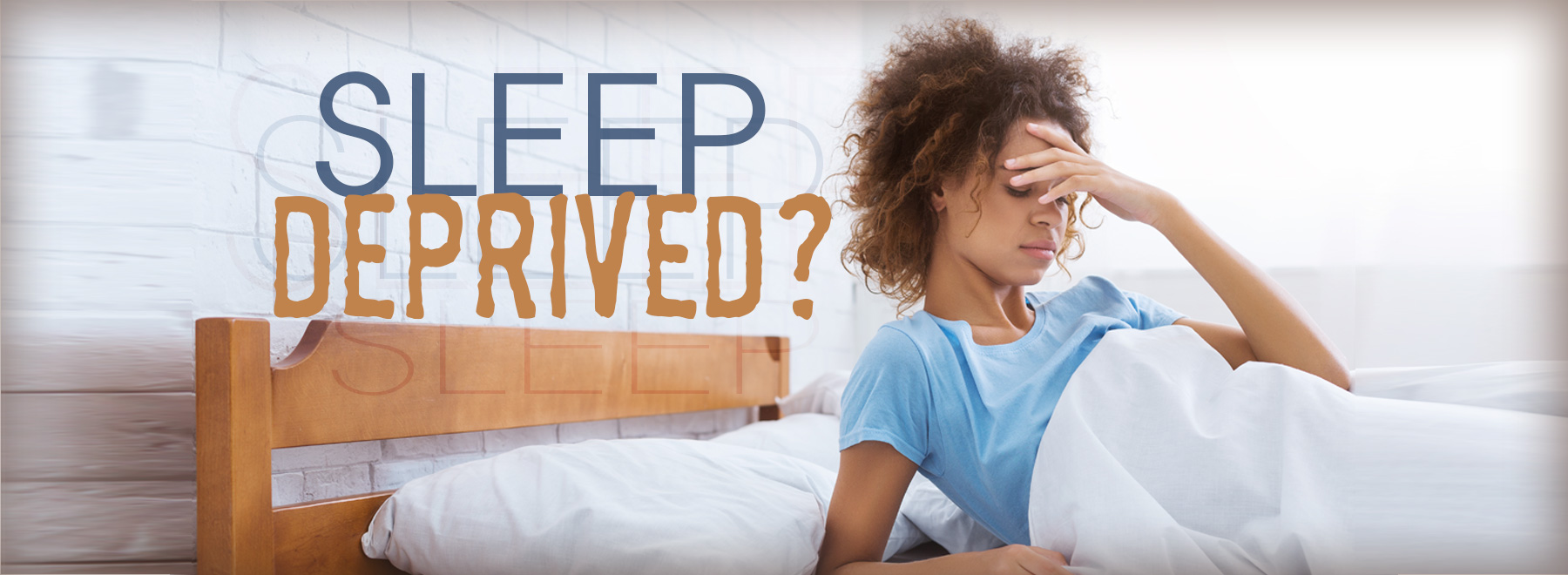Sleep-Deprived? Slumber-inducing tips may deliver peaceful rest
Can’t sleep?
Not being able to catch some Zs is a miserable existence, but for many people, it doesn’t have to be that way, according to a University of Mississippi Medical Center expert.
“Most sleep problems have nothing to do with sleep,” said Dr. Danny Burgess, associate professor of psychiatry and director of UMMC’s Center for Integrative Health. “It has to do with your behaviors day to day.”

If you consistently don’t get what your body considers enough sleep – Burgess suggests 7-9 hours a night for adults and 9-10 hours a night for students and teenagers – your body can shut down, he said.
“It’s a myth that you have to have eight hours of sleep,” he said. “Some people need four. Some people need 10. Don’t get hung up on a number.”
Considering that people spend about a third of their life sleeping, it’s important that sleep is meaningful, Burgess said.
“Our brain functions completely differently from the rest of our body. Research shows that when we are asleep, vessels in our brain constrict and the body uses sleep as the brain’s night cleaning crew.
“If you’re sleep-deprived, toxins and waste start to build up in your brain. Research links it to dementia, and people with a history of sleep deprivation are at higher risk.”
It also can lead to micro-sleep, such as nodding off in a meeting, or even worse, while driving.
“It can increase irritability: It doesn’t take much to set you off,” he said. “It can affect relationships. Lack of sleep can cause anxiety and depression, and that can affect your sleep.”
In extreme cases, being sleep-deprived for 36 to 48 hours on end can cause psychotic behaviors, he said.
Specialty care at UMMC includes sleep medicine, treatment that helps those who have problems with or during sleep. Sleep disorders can include trouble falling or staying asleep; narcolepsy or sleeping too much; sleep apnea; restless legs syndrome; sleepwalking and other abnormal sleep behaviors.
The Medical Center’s Sleep Disorders Program provides comprehensive diagnostic evaluations of those with suspected sleep disorders and a full range of treatments to reverse or improve diagnosed disorders.

Only a few ENT surgeons in the nation are fellowship-trained in sleep medicine. Among them is Dr. Andrea Lewis, UMMC associate professor of otolaryngology and communicative sciences, who practices in UMMC’s Sleep Medicine Program. She is one of the few physicians with training in both upper airway surgery and sleep medicine.
Burgess offers common-sense advice for those who have trouble getting to sleep, trouble staying asleep, or both:
• Be consistent. Your body wants the routine that comes with going to sleep at the same time every night. “The best thing you can do is have a consistent sleep time and a consistent wake-up time,” Burgess said. “If you go to bed at all these different times, your body can’t prepare for it.”
• Invest in a good mattress, just as you would invest in contact lenses or glasses if you can’t see well.
• Be aware of temperatures that can prevent restful sleep. Don’t take a hot shower or do exercise right before bed; they will increase your body temperature. Consider setting the thermostat at about 68 degrees.
• Eliminate noise and light. “If your bed is Grand Central Station, you’re going to have sleep problems,” Burgess said.
• Don’t pay bills, watch television or have conversations in bed. Those actions will associate your body with being active rather than with falling asleep in bed.
• Cut out daytime naps, or if you must, make them no longer than an hour, and none after about 2-3 p.m.
• Avoid alcohol, nicotine and caffeine. “Two cups of coffee in the morning are still in your system at bedtime,” Burgess said. Alcohol might help you drop off to sleep, but disrupt your sleep afterward.
• Set aside all electronics – including phones, computers and televisions – at least 45 minutes before bedtime. “For some reason, people think they can go 100 percent on electronics and then sleep,” Burgess said.
• If you can’t seem to turn off your brain and find yourself awake at 3 a.m., give it 15 minutes. If that doesn’t work, relocate yourself somewhere else in your home and read or work a puzzle until you’re sleepy, then get back in bed.
• If worry keeps you up at night, write down what’s on your mind and what you can do about it. “You’ve done everything you can for right then,” Burgess said.
He offered one more tip that might be especially enlightening: Don’t use the snooze button on your alarm.
“It’s a very stressful way to start the day,” he said. “It means you have to rush. It’s not peaceful.
“You’d be amazed at how much better your day goes if your first decision is to make a decision where you are in control. If you hit the snooze, you have lost control.”
Instead of setting your alarm at, say, 5:30 a.m. with the intent to snooze until 6, “it’s better to set the alarm for 6 and get up,” he said. “You are making the decision to get up. It will change your life.”
Lastly, Burgess said to create a sanctuary or sacred place – with no distractions – were you can honor sleep.
“Keep it protected and you will see improvement,” he said.
Patients with concerns about their sleep who need a thorough evaluation, diagnosis and treatment plan can call UMMC Sleep Medicine at (601) 984-4820. The Center for Integrative Health offers physical, behavioral and pharmaceutical therapies to address behaviors that impact sleep. Call (601) 815-4368.
The above article appears in CONSULT, UMMC’s monthly e-newsletter sharing news about cutting-edge clinical and health science education advances and innovative biomedical research at the Medical Center and giving you tips and suggestions on how you and the people you love can live a healthier life. Click here and enter your email address to receive CONSULT free of charge. You may cancel at any time.



